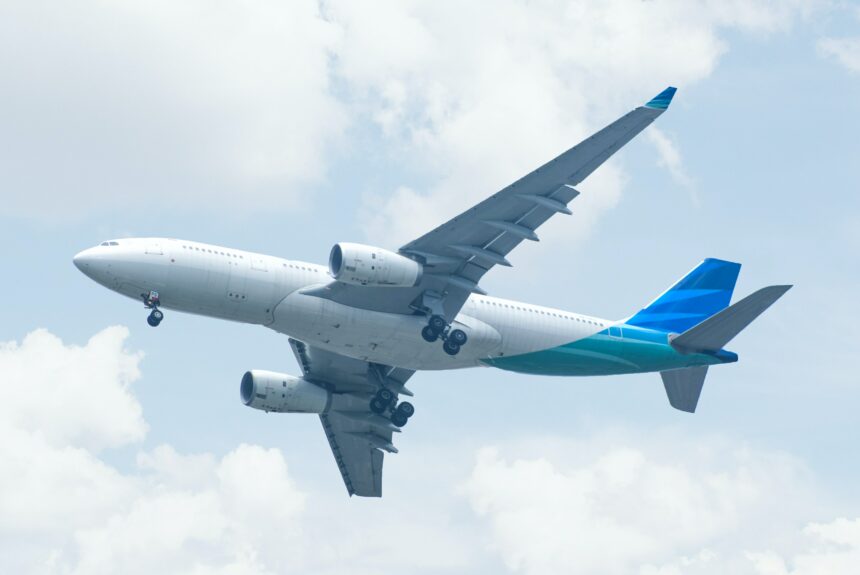As one of the most popular and safest forms of global transportation, aviation is essential to powering modern life. Air travel helps move goods around the world and empowers people to explore the world. With respect to other forms of transportation, aviation has a relatively small contribution to the world’s climate footprint —accounting for around 2% of global greenhouse gas emissions annually. Even so, the industry is innovating with several companies proposing novel ways to reduce the carbon footprint of commercial air travel while maintaining cost competitiveness.
>>>READ: An Innovative Solution to Reduce Air Travel’s Climate Impact
Much like ground transport, electrification is a possible path forward, but there are still major problems to be overcome primarily with regard to the size and weight of batteries that are needed to power airplanes for long distances. There are also challenges with long charging times at airports. However, interest in electric aviation is increasing with some companies focusing on using the technology to provide fuel for short-haul flights. Venturi Aviation is exploring ways of designing an electric 50-seater aircraft capable of flying 621 miles (1,000 kilometers) while Joby Aviation is partnering with Toyota to roll out its eVTOL (electric vertical takeoff and landing vehicle). Since 2019, Joby has flown more than 30,000 miles with its eVTOL prototype and is undergoing the Federal Aviation Administration’s regulatory review before it can bring eVTOL to market. Under its current contract with the Air Force, Joby will bring an eVOTL to Edwards Air Force Base in 2024.
Other potential alternatives are focusing on biofuels sourced from algae, waste oils, palm oil and solid biomass. United Airlines is partnering with Honeywell and Alder Fuels to purchase over 1.5 billion gallons of sustainable aviation fuel (SAF). As a result, Alder is building a production facility in the Southeastern United States that will make SAF with sustainably sourced biomass from Enviva. The facility is expected to produce three million gallons of liquid hydrocarbon biofuel each year, two million of which will be sustainable aviation fuel.
Alcohol has also been identified as a potential source of sustainable aviation fuel. Numerous companies, such as Honeywell, are exploring ways to de-oxygenate ethanol and butanol and turn them into jet fuel. LanzaTech is one of the leaders in the field and started its initial investigations into the fuel back in 2010 at the Pacific Northwest National Labs in collaboration with the FAA and US Department of Energy. Approval for the systems was obtained in 2018, and since then its fuel has been used for several flights including a Virgin Atlantic commercial passenger flight from Orlando, Florida to London in 2018, and the delivery of a Boeing aircraft from the United States to Tokyo in 2019.
LanzaTech is developing a commercial scale alcohol to jet fuel production center in Port Talbot, South Wales. The center will include two separate facilities, one of which will convert greenhouse gases to ethanol, while the other will transform that ethanol into fuel.
Developers are also moving in on hydrogen as a potential source of sustainable aviation fuel. Although still in their infancy, hydrogen-powered planes are becoming increasingly feasible. The International Council on Clean Transportation (ICCT) published a report in 2022 entitled Performance Analysis of Evolutionary Hydrogen-Powered Aircraft’ which indicated that hydrogen has the potential to dominate the small and medium-haul aircraft market by 2050.
>>>READ: German Brewery Invents World’s First Powdered Lager
Aircraft giant Airbus is working on implementing hydrogen fuel into its aircraft plans as part of its ZEROe program. This includes a 200-seat jet airliner with a range of 2,000 miles (3,500 km) that is powered with a liquid hydrogen tank and modified gas-turbine engine. Meanwhile, UK startup ZeroAvia is focusing on the creation of hydrogen fuel cells within a propulsion system. It has partnered with US-based manufacturer Otto Aviation to develop a new hydrogen aircraft, while American Airlines has just invested in ZeroAvia’s engine systems, potentially opening the way for ordering 100 ZeroAvia engines.
Given the value of aviation for everyday life, it is important for airlines to find affordable ways to reduce emissions. Thanks to the work of the private sector, companies are developing impressive breakthroughs to lower the cost of sustainable aviation to benefit of consumers and businesses alike.
Angela Youngman is a long established freelance journalist and author based in the UK specialising in business, sustainability, travel, tourism, leisure, food & drink.
The views and opinions expressed are those of the author’s and do not necessarily reflect the official policy or position of C3.
